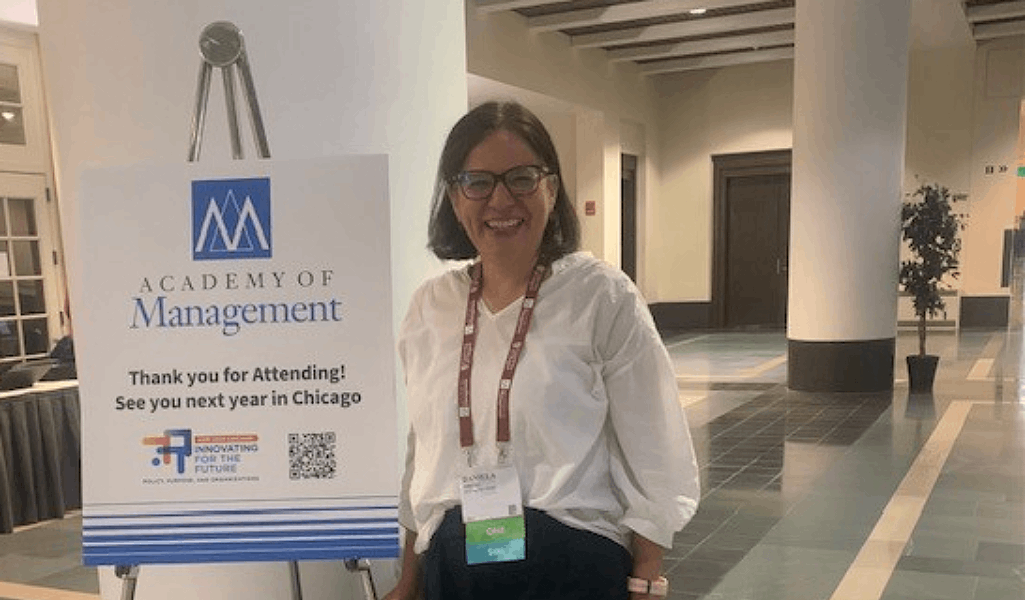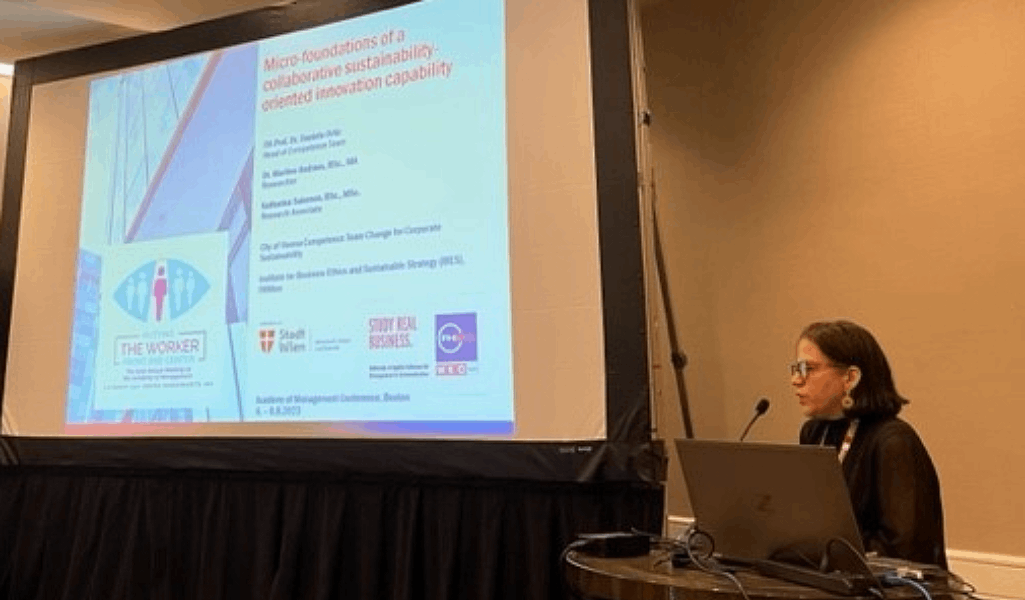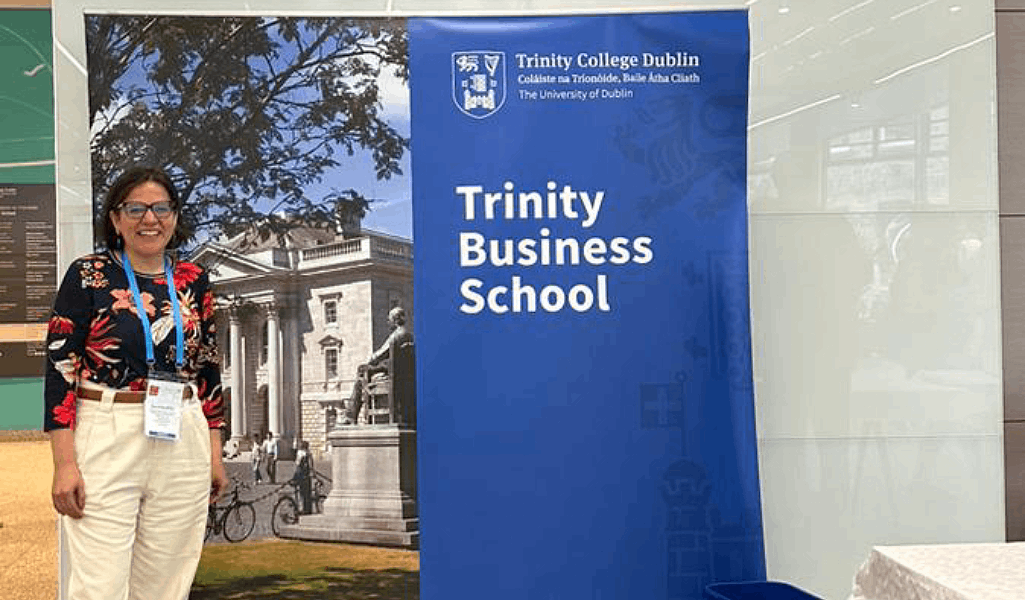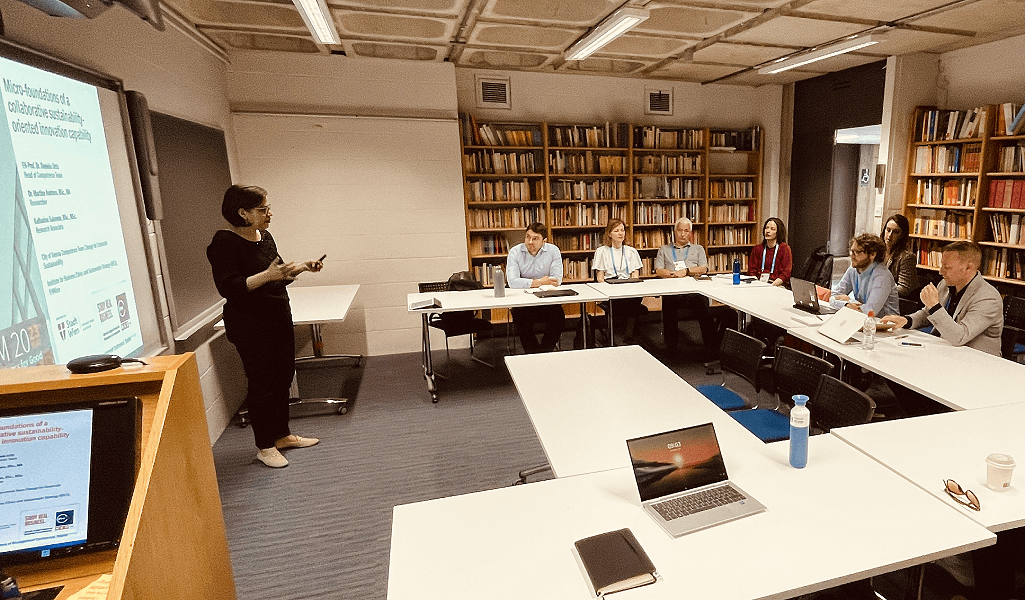Daniela Ortiz, Academic Head of IBES, presented at the European Academy of Management (EURAM) conferences in Dublin (Ireland) and the Academy of Management (AOM) in Boston (USA) on how companies can develop their capabilities for sustainable innovation.
Daniela Ortiz, who is also the head of the Change for Corporate Sustainability (TransformS) competence team funded by the City Vienna (MA23), is currently researching the dynamic capabilities for sustainability that enable sustainability-oriented innovations in the first place. In their quest to advance the sustainability agenda, some companies pursue the development of sustainability-oriented innovations (SOI). In doing so, they seek collaboration with internal and external partners. However, to develop these SOIs, companies must first build up Dynamic Capabilities for Sustainability (DCsS).
Sustainable strategy and collaboration in practice
To also ensure the transfer of the latest research results into practice, the members of the competence team held numerous interviews with companies such as Metalltechnik Vils, VERBUND, Neuman Aluminium and Lenzing, to name but a few. These conversations were focused on the processes of strategic change related to an increase in corporate sustainability. In these exchanges, Daniela Ortiz and her team could give some insights on how to improve the process towards a sustainable strategy and collaboration.
Four productive dialogues for more sustainability in the supply chain
The aim of the conceptual and empirical study conducted as part of the “TransformS” research project is to understand the emergence of DCsS from multiple perspectives. Based on an analysis of SOI projects in large and established European manufacturing companies, a grounded model for the development of these dynamic capabilities was established.
Four types of productive dialogues were identified that are led by focal firms in the supply chain and that promote the emergence of DCsS:
- dialogues with downstream members of the supply chain.
- dialogues within multi-stakeholder settings
- inter-firm productive dialogues that focus on joint innovation and collaboration
- intra-firm productive dialogues that integrate sustainability across the firm.
It has been shown that the first two types of productive dialogues trigger sustainability-oriented innovation projects. The other two types lead to an allocation of resources within and between companies to accomplish the initiated projects.
Research results secure pioneering role
In Dublin and Boston, also other conditions that influence productive dialogues were presented. These include the behavior and cognition of individuals as well as structural elements such as strategy, goals, resource allocation or top management support. IBES at FHWien der WKW and the participating manufacturing companies intend to use these insights to pioneer the development of more sustainable business practices.



